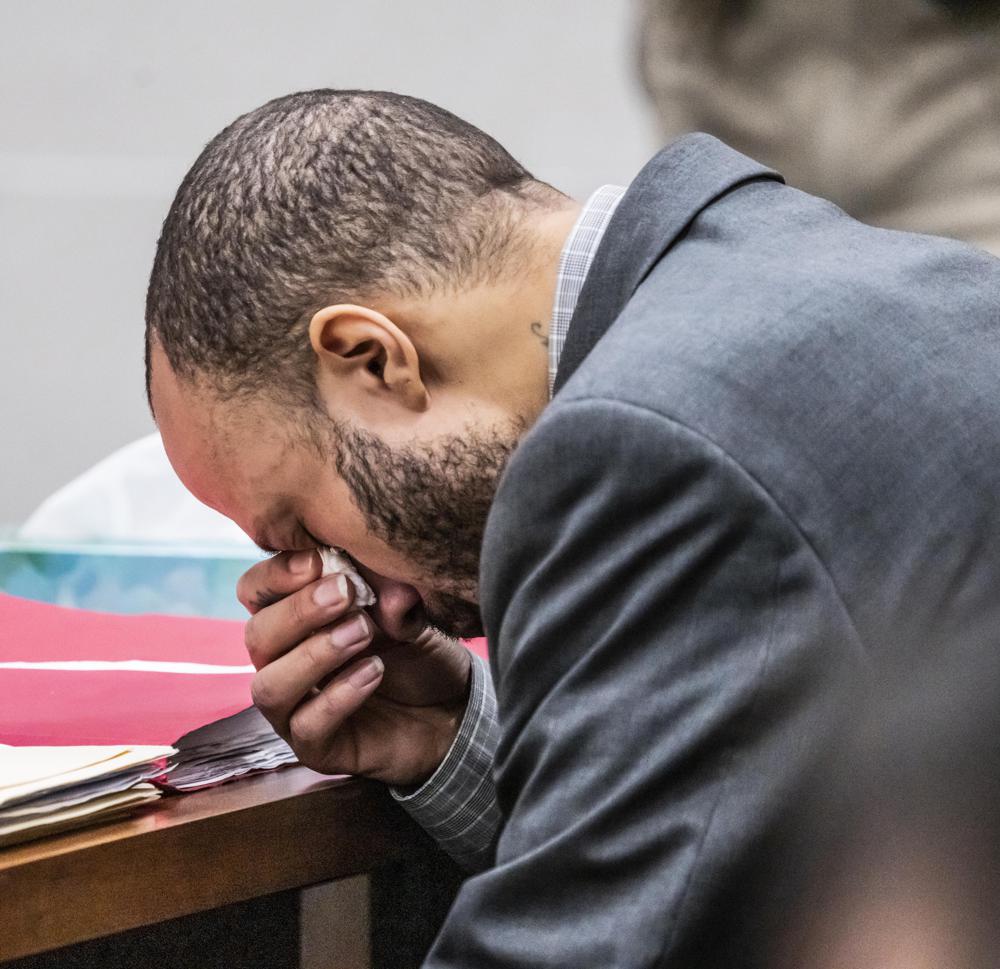Wisconsin
Wisconsin parade suspect gives tearful opening statement

MADISON, Wis. (AP) — A man accused of killing six people and injuring dozens of others when he allegedly drove his SUV through a Wisconsin Christmas parade last year gave a tearful opening statement Thursday as he defended himself at trial but didn’t outline any defense theories that might save him from prison.
Darrell Brooks faces 76 charges, including six homicide counts, in the Nov. 21 tragedy in the Milwaukee suburb of Waukesha. Investigators maintain he drove into the parade route after fleeing a domestic disturbance with his ex-girlfriend, though police were not pursuing him at the time.
Brooks took the unusual step of dismissing his public defenders just days before his trial began this month, electing to represent himself. At times, Brooks has refused to recognize his own name and become so disruptive that Waukesha County Circuit Judge Jennifer Dorow ordered him removed from the courtroom. He frequently has muttered under his breath about the trial not being fair and objected to almost every question prosecutors have asked of witnesses, usually to no avail.
District Attorney Susan Opper rested her case Thursday after 2 1/2 weeks of testimony, including from multiple police officers and others who attended the parade. They variously testified that they saw the SUV enter the parade, were hit by the SUV or saw Brooks behind the wheel.
After a lunch break, Brooks began his side of the case with a rambling opening statement. Brooks told jurors he hadn’t rehearsed anything and would speak from the heart. However, he didn’t lay out his version of what happened, allude to how he would defend himself or reveal who would testify on his behalf.
Opening statements are usually when prosecutors and defense attorneys offer the jury a roadmap of their version of the case, often presenting their theories about guilt or innocence and noting which witnesses will take the stand and what they’ll say.
Brooks called what happened at the parade “a tragedy” while reminding jurors that there’s two sides to every story.
“It’s easy to look at the magnitude of something like this and form opinions,” he said. “I think it’s easy to disregard a lot of factors. … It’s easy to forget the other side of the coin.”
He then started choking back tears and dabbing his eyes with a tissue. He said the entire community is suffering, including his family.
“There’s been a lot of words thrown out there about the alleged, lot of speculation, lot of ridicule. Words like ‘demon.’ Words like ‘molester,’” he said.
Brooks has been wearing a surgical mask in court but removed it during his speech. “It’s important that you see me for who I am. No mask. For who I am. This is the moment for that. I pray that your eyes and ears remain as open as possible,” he told jurors.
Finally, he broke down in tears, sat down at the defense table and bowed his head.
Dorow then called a short break to allow Brooks to gather himself.
When court resumed, Brooks called the state of Wisconsin to the stand. Throughout the proceedings he has maintained the government doesn’t have jurisdiction over him and only a “living human brain” can bring a claim against another in court. When told the state isn’t a person, he asked that the case be dismissed. Dorow told him to call his next witness.
Brooks called Nicholas Kirby, who testified that he helped Brooks’ ex-girlfriend escape as Brooks was assaulting her in his SUV minutes before he drove into the parade.
Brooks pleaded not guilty by reason of mental disease earlier this year, then withdrew the plea without explanation. Psychologists have determined he is competent.
By Todd Richmond — trichmond1[email protected]

